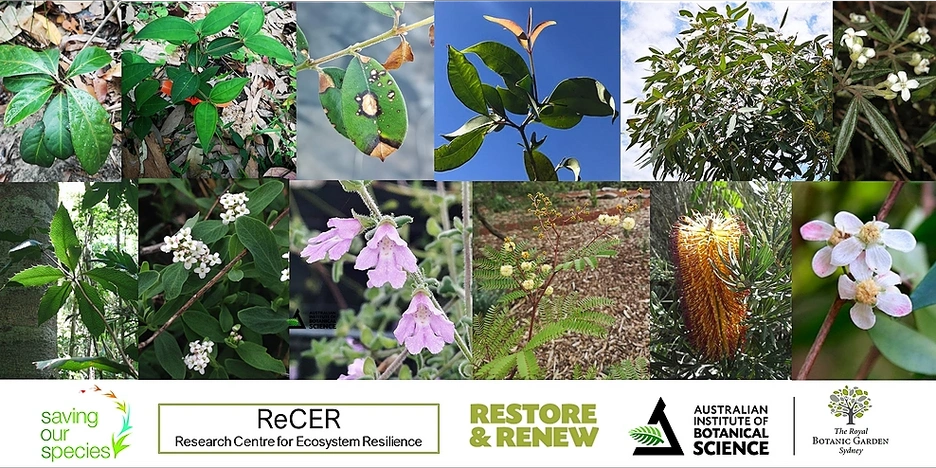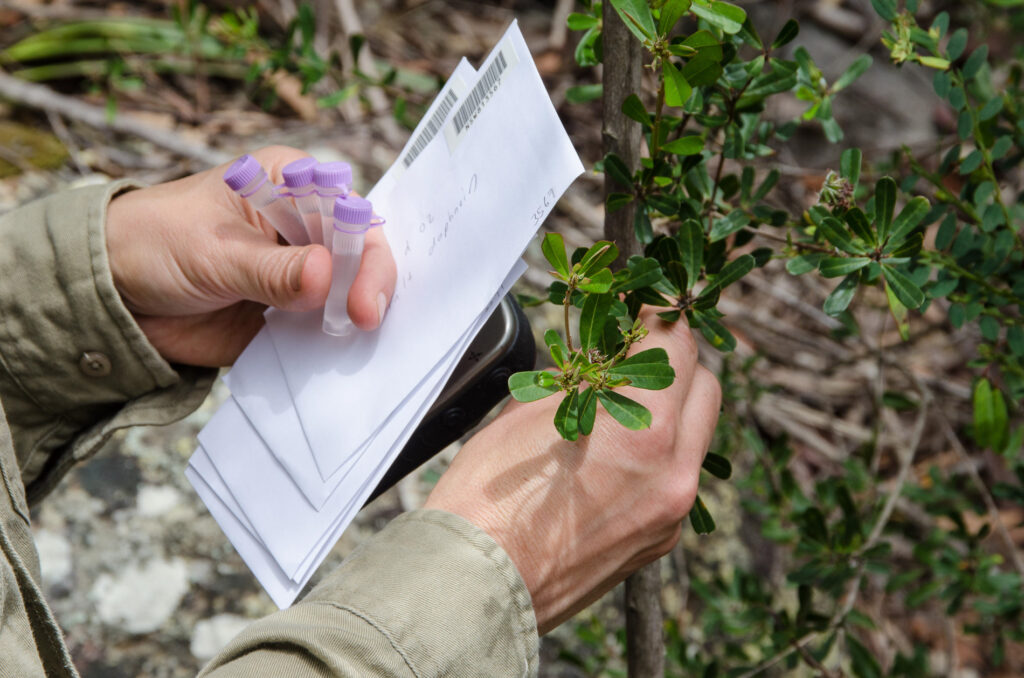Genomic research guiding the recovery of threatened flora – three case studies

Conservation genomic research by the Research Centre for Ecosystem Resilience (ReCER) has helped guide the recovery of over thirty threatened plant species. To commemorate National Threatened Species Day 2023, we kick off a new regular feature where we highlight how conservation genomic information is informing the on-ground management of threatened plants.
Genetics is helping to save plant species decimated by myrtle rust

The introduced plant disease myrtle rust affects around 350 Australian native plant species, with some on their way to becoming extinct in the wild. Genetic information is helping to guide collection of myrtle rust impacted species for safe storage in botanic gardens. One day, these living collections may help restore wild populations.
Ensuring our research informs on-ground conservation and restoration: ReCER team retreat 2023

The ReCER team gathered at the Crommelin Field Station, Pearl Beach in May to ponder how to ensure our research informs the restoration and conservation of resilient ecosystems.
Publications booklet 2022: helping ReCER research outcomes reach practitioners, planners and policymakers.

ReCER’s research informs the conservation and restoration of resilient ecosystems. One of the tools we are using to help our research reach practitioners, planners and policy-makers is to produce an annual booklet containing abstracts of all our publications. The 2022 publications booklet can be downloaded here.
Using Restore and Renew webtools to guide restoration of threatened ecological community Cumberland Plain Woodland

A new research project by the Research Centre for Ecosystem Resilience (ReCER) is exploring how genomic information can guide the restoration of threatened ecological communities.
Restore and Renew – making genomic and climatic information freely available to restoration practitioners

This is part 2 of a three-part series on using conservation genomics to help restore threatened ecological communities. In part 1, we described why genetics is relevant to ecological restoration. Below, we outline how restoration practitioners can use the Restore and Renew web tools to consider genetic information and climate change when sourcing material for […]
Why is genetics relevant to ecological restoration?

Genetic information can help ensure restoration plantings are of appropriate provenance and sufficiently genetically diverse to be resilient in the long term.
Conservation and restoration genomics workshop for field practitioners

A workshop presented by the Research Centre for Ecosystem Resilience. 10 May 2022 at the Maiden Theatre, Royal Botanic Garden Sydney
Working with plant genetics.

The genetics revolution is changing the way we study nature. Millions of years of evolution has taken plant species on a fascinating journey of change and adaptation. A plant’s story is hidden in its DNA, now we have to tools to read that story.
